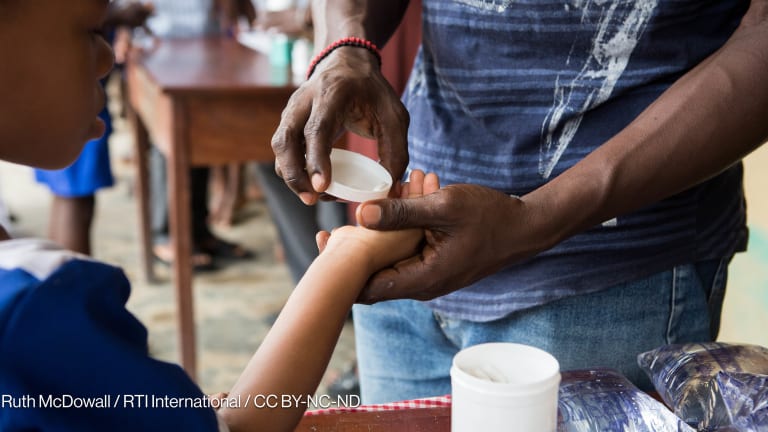
The arrival of highly effective messenger RNA COVID-19 vaccines in December 2020 generated one of those split-screen moments all too common in the world of global health. People in high-income countries celebrated a major medical breakthrough. People in low-income and many middle-income countries settled in for a long wait for their turn.
The barrier for accessing mRNA vaccines highlights an enduring problem with medical research, where affordability and ease of use are not always valued as essential aspects of a true breakthrough. In the case of mRNA vaccines, the need for ultracold storage limited access in low-resource settings.
To be sure, the world needed to move fast amid a deadly infectious disease for which few countries seemed truly prepared. But the challenge remains to ensure that these types of innovations are designed from the start to be accessible to all, regardless of location or available resources.
The must-read weekly newsletter for exclusive global health news and insider insights.
A key player in advancing such technologies, the U. S. Agency for International Development, has its hands tied in several ways.
Today, USAID’s investments in medical innovation are drawn from funding appropriated by the U.S. Congress for disease-specific programs, and those budgets are already stretched thin. That forces difficult choices: invest in distributing an existing tool or invest in developing a new or improved one that might not be available for several years.
This disease-specific structure also makes it harder for the agency to quickly pivot to emerging opportunities or needs. It was one reason the agency has made extremely limited investments in research and development for COVID-19 tools designed for low-resource settings.
The challenges around mRNA COVID-19 vaccines are just the latest example of what the late global health visionary Dr. Paul Farmer ruefully referred to as “excellence without equity.” But for USAID to play a greater role in combining excellence with equity, we need to address obstacles that limit the agency’s impact. That’s why a coalition of organizations is proposing a new way for USAID to invest in health research and development, or R&D — the Supporting Innovative Global Health Technologies Fund, or SIGHT Fund.
The SIGHT Fund could be established with an initial allocation of $250 million from Congress. This would be new R&D funding — not money pulled from existing programs. Importantly, this would give USAID the flexibility to support high-impact global health innovations wherever there is a great opportunity or an urgent need.
For example, the SIGHT Fund could capitalize on emerging vaccine technologies — including heat-stable mRNA technologies now under development — to address the fact that only one out of the 20 neglected tropical diseases prioritized by the World Health Organization has a vaccine.
The access issues with these mRNA vaccines point to the importance of creating a positive feedback loop between health innovation and access. When that happens, the results can be transformative for global health and development.
For example, a low-cost vaccine against meningitis A that does not require refrigeration, known as MenAfriVac, has virtually eliminated the disease everywhere it was introduced in a 26-country region of Africa known as the “meningitis belt”— where, over a couple of decades ago, a single meningitis epidemic killed 25,000 people.
Other examples of access-oriented innovations include child-friendly tuberculosis and malaria treatments — both of which replace the need to crush pills made for adults, guess the dosage, and struggle to get the child to swallow it.
All of these innovations have one thing in common: They emerged from partnerships that benefited from crucial late-stage development support from USAID. They demonstrate how this agency’s decades of work building partnerships across the health systems of dozens of countries has endowed it with an impressive ability.
A dedicated R&D fund would also be well suited for advancing innovations applicable to multiple diseases. New insecticides are urgently needed to fight the spread of mosquito-borne diseases like malaria, dengue, and chikungunya that are now being intensified by insecticide resistance. Innovations to address the rise of diabetes and other chronic diseases in low-income countries are also needed. These are R&D needs that cross the traditional siloes of USAID’s disease-specific programs.
Clearly, a $250 million investment in global health R&D — a figure representing less than 3% of current U.S. spending on global health — could deliver incredible returns and help stock the global health toolbox of tomorrow.
Entering the third year of a global pandemic, everyone in the world is aware of the disruptive power of infectious diseases. Fortunately, we have in USAID an agency with a proven ability to fast-track health innovations suitable for deployment in very challenging conditions. We encourage others to join us in supporting the creation of the SIGHT Fund so we can take full advantage of these unique and valuable attributes.









